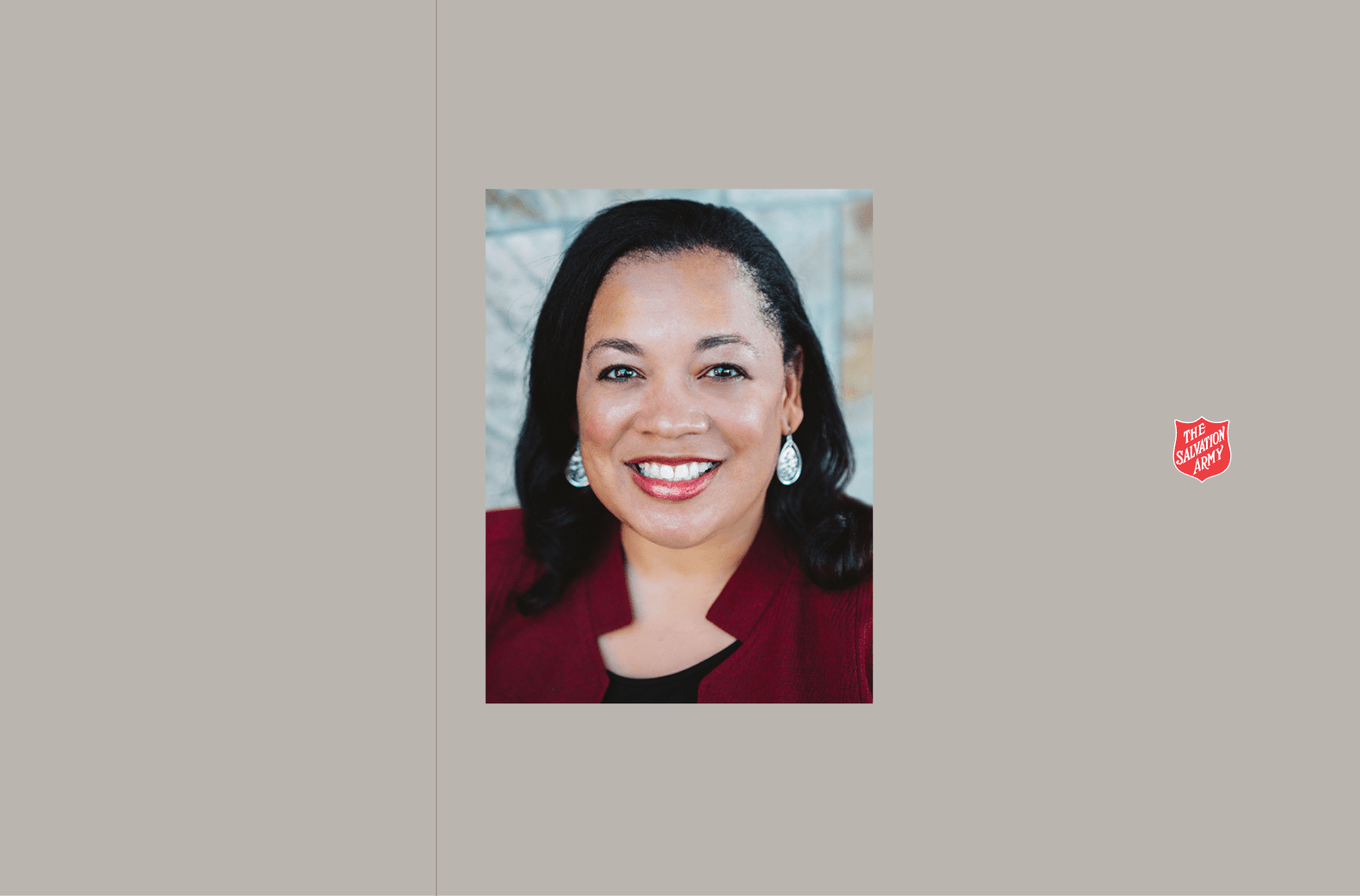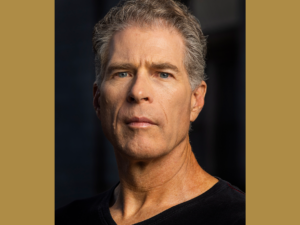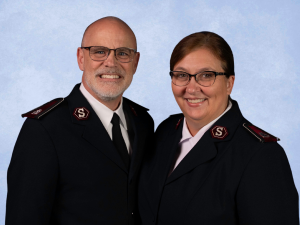Take a quick inventory:
- Do you often feel tired when you wake up in the morning?
- Have difficulty concentrating?
- Are your emotions easily affected by the actions of others?
- Have headaches, muscle aches, or generalized fatigue with no known medical diagnosis?
- Do you depend on quick energy fixes like caffeine or sugar to help you get through the day?
If you answered yes to any of these questions, chances are you’re in need of genuine rest.
How can you keep your energy, happiness, creativity and relationships thriving in the midst of never-ending family demands, career pressures and simply the stress of everyday life?
Here’s the doctor’s orders: Rest is not optional.
Dr. Saundra Dalton-Smith is an author, speaker, and board-certified physician with an active medical practice in Alabama. She’s a member of the Christian Medical and Dental Association, where she often speaks on merging faith and medicine to treat the whole person.
And she’s found seven types of rest lacking in the lives of those she treats: physical, mental, spiritual, emotional, sensory, social and creative. Plus, she knows firsthand the toll a deficiency of rest can take.
Her book, titled “Sacred Rest: Recover Your Life, Renew Your Energy, Restore Your Sanity,” combines the science, spirituality, gifts and resulting fruit of rest. And she’s here to share how you can find and embrace true rest today to live the good life we’re all after.
Show highlights include:
- The biggest misconception we have when it comes to understanding rest.
- What it means to find genuine rest.
- What led Dr. Dalton-Smith to write her book, “Sacred Rest.”
- What she typically sees in a patient who’s lacking genuine rest.
- Why rest is complicated and why we have such a hard time with it.
- The seven different kinds of rest.
- How to find the areas of rest you are deficient in.
- What to do if you’re deficient in physical rest.
- How faith shapes Dr. Dalton-Smith’s work.
- How rest reveals things about ourselves.
- How Dr. Dalton-Smith made the change in her own life and how she maintains it.
- The secrets of the well rested?
- How to find rest today.
Listen and subscribe to the Do Gooders Podcast now. Below is a transcript of the episode, edited for readability. For more information on the people and ideas in the episode, see the links at the bottom of this post.
* * *
Christin Thieme: Dr. Dalton-Smith, welcome to the Do Gooders Podcast today and thank you for being here.
Saundra Dalton-Smith: It’s my pleasure. Thanks for having me.
Christin Thieme: What’s the biggest misconception that we have when it comes to understanding rest?
Saundra Dalton-Smith: I think the biggest misconception is that rest simply means stopping or the cessation of activity. So because that’s how we view it, most of us think that sleeping and rest are the same thing. So if you’re sleeping six, seven, eight hours a night, then you think, “Well, I’m getting adequate rest,” but really rest is more than just the sleeping. There’s so many different ways that we need to be restored. And that’s really what’s at the core of rest is what are those restorative things that you do, those restorative activities to help you be at your best?
Christin Thieme: You wrote the most underused chemical-free, safe, effective alternative medicine is spelled R-E-S-T. So what does it mean to find genuine rest?
Saundra Dalton-Smith: Well for myself when I was working through my own burnout and really doing the research just to try to get myself to a better place, what I really had to understand is that when I say I’m tired that I’m not always meaning that I’m physically tired. And so I had to determine what does that really mean. When I say I’m tired, what is fatigued? What is drained? What is needing to be restored? And that’s what really led me into evaluating just different types of rest that I needed to be able to not feel so exhausted.
Christin Thieme: You mentioned your own burnout. What led you to write this book Sacred Rest?
Saundra Dalton-Smith: That was it. Internal medicine, really any kind of healthcare field has kind of a built-in martyr complex. You just know you’re going to be working long hours. I mean, it’s a part of the profession. And so there’s a bit of a badge of honor that I think our society takes on with being able to say, “Oh, I only slept three hours so I can function off two hours.” And so we get into a situation where it almost causes people to feel shame that they can’t keep going at that speed forever.
And so I was pushing, pushing, pushing and trying to keep on top of hours of work with little to no recovery time between that, and really just burned out, and got to a place where I wasn’t finding any joy in my life. Really couldn’t bless people at the level that I wanted to because I was just so tired.
Christin Thieme: What do you typically see in a patient who comes in and is lacking rest?
Saundra Dalton-Smith: Well, there’s lots of different symptoms that people exhibit. It really depends on the type of rest where they are having their biggest area of deficit. So I talk about in my book Sacred Rest, there’s seven different types of rest. And so the seven types are physical, mental, spiritual, emotional, social, sensory, and creative. And so when we’re looking at these seven different types, each type has different characteristics of what you’ll experience if you have a deficit in them.
So just for an example, someone with a physical rest deficit may notice that they have a lot of tightness and pain and discomfort in their neck-shoulder area where they’re holding all the tension. Or they may find that they’re getting sick more than everybody else in their family with no underlying medical conditions to explain it. And it’s really just a process of how the body is overtaxed because of the excess of cortisol from being so stressed.
Whereas someone else who may have a mental rest deficit may find that they’re forgetful or may find that they have a hard time concentrating, or they can’t get their brain to shut up when they try to go to sleep at night. They keep thinking about all the different things on their to-do list and can’t really get into those deeper high-quality sleep that they want.
Christin Thieme: Why do you think it’s so complicated for us to find rest? Why do we have such a hard time with it?
Saundra Dalton-Smith: Well, I think our culture plays a big part of that. And I think for most of us, we really don’t understand what rest is. Like many of us, and myself included, I’ve always thought that if I got enough sleep, then shouldn’t I feel refreshed? Shouldn’t that be enough? And what I wasn’t realizing at the time is that sleep can’t fix all of the types of rest. So of the seven that I mentioned, when you go to sleep, yes, your senses are downgraded. So you get a little bit of sensory rest. Yes, technically your body’s still. You can still have a very painful tight body, but technically it is still and in a relaxed state so you’re getting some active physical rest in that your body’s getting rested, but you’re not going to improve an emotional rest deficit or a social rest deficit or a creative rest deficit by getting more sleep. Those require you to be doing things, restorative activities in part with other people or in nature, or in ways that you’re restoring yourself. And so going to sleep is not going to solve those types of rest deficits. And I think that’s really at the core of it.
Christin Thieme: One of the seven types of rest is spiritual. How does faith shape your work?
Saundra Dalton-Smith: Well in internal medicine, I spent probably the bulk of my 20 years of practice not really looking at how faith and medicine merged. And I got to a place in my practice where I really just felt like I could get people to a certain level of improvement, but there was still something that they were not getting that they needed. And that’s when I really started to see how the mind, the body and the spirit really has to work together for people to get to a place of their greatest level of health.
And so that’s when I started introducing just the idea of how can you use your faith beliefs. And that’s really why spiritual rest is even one of the types of rest, because I think it’s important that we’re aware of our need for a spiritual connection and be able to allow ourselves to find rest in that. Whether that’s what the body of believers or in the time you spend in fellowship with God, just through your own time that you’re spending with Him however you really feel the most connected to make sure that you are allowing that space in your life for those opportunities.
Christin Thieme: And you write that once you determine the rest that you’ve been missing and you will recover your life, renew your energy and restore your sanity. And you have a quiz that identifies the areas of rest that someone might be deficient in. I took your quiz and one of the score ranges is that you’re feeling the effects of your lack of rest and need a change. And five of the seven types of rest for me fell into that range. So is that unusual? I imagine in modern society where we’re busy and have families and long to-do lists and so on, that’s not that unusual. But what do you recommend to someone who needs to make a change?
Saundra Dalton-Smith: Well, typically someone who received that score where they fall within that range, they may not have known which type of rest that they needed, but they knew that they were tired. They knew that there were times that they did not feel at their best or that they feel really as energized as they know is possible. So really what the quiz does is it helps you to identify where the areas you need to be more intentional at doing restful restorative activities.
And I make that statement, restorative activities, because there’s specific things you do to pour back in the energy that you’re pouring out, because that’s how you get these rest deficits. If you are, for example, if you are a counselor or a teacher. And so you’re constantly dealing with other people’s emotions and you’re dealing with personalities and just dealing with people in general, you’re pulling from your emotional energy and dealing with their emotions and how they affect you. And you’re dealing with the social interaction, part of that in their personalities. So you’re pouring out of those two buckets.
Now, what do you do after that day’s work that helps you restore in these areas? Are there times that you have that you can express yourself to someone and get the emotional rest of being very authentic and real without having to kind of have your professional mask on that we oftentimes go into these situations with when we are the one in power, so to speak, or the one who someone’s coming to. Same with the social rest part of it. Social rest deals with the relationship we have with certain people. So if someone is needing something from you, they have demand on your time or your talents or your gifting, then they’re pulling from your social energy. Doesn’t mean that they’re a negative person. It’s just the nature of the relationship. That could be your family, your spouse, your elderly parents, anyone who’s needing something from you.
Now you have to look at are there people in my life who don’t need anything from me, but I just enjoyed being around that are life-givers that pour back into me, that affirmed me, that help me really feel loved and cherished. And are you making room and space in your life for those people so that they can pour back into you? And so it’s a process of being aware of that because the lack of awareness leaves those places often empty. So we’re still doing our work. And I think that’s something to bring up. A lot of people are functioning drained and burned out. They are producing in the process of still being burned down. They’re just producing at a level that’s not as good as it could be, because they’re giving out of their emptiness rather than from their place of fullness.
Christin Thieme: So my highest score was physical, which you’ve talked about and how so many of us think that sleep just fixes that. You mentioned a statistic that 97% of us state that we feel tired most of the time. So how do we find physical rest?
Saundra Dalton-Smith: Well, physical rest has two different components. So we have the passive, which is the sleeping and the napping. And then we have active physical rest, which includes those things that help our bodies stay flexible, that help us keep our muscles from being tight and tense. So active physical rest can include anything from massage therapy to stretching, to doing a leisure walk, something that just helps improve your circulation and your lymphatics. And making sure that you’re being aware of how you’re using your body in your day.
Because sometimes because people think, “Well, I work a desk job. So I sit at a desk all day. Why is my body physically tired? Why is my physical rest score high?” Well, in medicine, we call a sedentary lifestyle just as bad as smoking now because of the way it affects our bodies and the way that it actually increases your risk for a lot of chronic diseases. So it’s important to be aware that just because you’re sitting still doesn’t mean that you can’t have a physical rest deficit.
Because how you use your computer, the ergonomics of your desk chair, whether or not your spine is in proper position, or if your neck’s bent over while you’re looking at your computer screen or of your wrist are propped up in the wrong way building up carpal tunnel syndrome. There’s multiple ways that your body can gain toxicity, even while it’s sitting still.
Christin Thieme: You write that rest reveals things about ourselves and that process can be messy. What do you mean by that?
Saundra Dalton-Smith: Well, sometimes people stay busy because that’s how they find their worth. So they feel their value’s tied up in what they do. And so the more I do, the more valuable I must be and then it’s an endless cycle until you burn out. And so I think it’s important to get a clear understanding of why you do the things you do. Are there things you’re doing that are people-pleasing behavior, which usually is a sign of an emotional rest deficit? You felt like you have to keep your personal boundaries low so as not to offend people and not to have a confrontation.
Rather than being truthful about what you feel and believe, and desire in that moment, you can say a no gracefully, but I rather have a graceful no than an untruthful yes. Because someone who’s giving you a yes out of either guilt or shame or pressure in any other way that they feel upon themselves, really that yes should have been a no.
Christin Thieme: Right. And what impact has the last year and all things pandemic had on how we find genuine rest?
Saundra Dalton-Smith: I think if anything, 2020 really helped us to see that just being home in our houses is not restful. I think a lot of people before 2020 ever hit, if we asked, “What is your dream situation?” Everyone wanted to work from home, be their own boss, do their own thing, do it from their kitchen table, have a nomadic lifestyle. That was kind of the dream for a lot of people. Well, the dream became true around March and April. Everyone was in their house and it wasn’t as restful and peaceful and as fun as they thought it would be because just stopping or the cessation of activity as I mentioned is not restful in itself.
Christin Thieme: What about for your own story? You talk about your burnout. In the book, you talk about a day that you came home and literally laid down on the floor. So how did you go about making this change in your own life, practically speaking, and how do you maintain it?
Saundra Dalton-Smith: Well that, yes, that day specifically that you’re mentioning, it was one where at the time I had two toddlers. My kids were born about 20 months apart. So I had two toddlers who’d just finished eight, nine-hour day at my office and pick them up and came home. And on that particular day, I don’t know if that anything was any different than any other day. I felt like I got to the end of myself. It was like the last straw for whatever reason. And when I set the kids in front of the TV just to kind of entertain them while mommy went and had a moment, I laid down on the floor. I just had gotten to a place where I was so tired I just couldn’t see the point anymore.
It’s one of those situations where my patients would come in and they would tell me, “Oh, you’re blessing my life so much. I’ve never had a doctor listen to me like this. I’ve never had anyone kind of take my whole person into account, my mind, my body, my spirit, and all these things,” because I was doing at that time. I’d already had kind of a realization that the spiritual aspect needed to be there. And so I was already doing that and people were telling me how blessed they were getting, but I didn’t. I felt like I wasn’t enjoying any of the things that they were talking about.
I felt like one of the things that came to mind during this process was when I take a look at the bee and my son was doing a project on bees as I was writing Sacred Rest. And one of the things that really hit me at the time was that the bee is always busy doing, producing, and it’s producing at a great level. People love to watch it produce, but the bee never actually takes a moment to reflect on what is produced and actually tastes what it produced. And I don’t want that life. I don’t want a life where I’m blessing everyone else and they’re loving the sweetness of what I’m producing, but I haven’t actually stopped to taste it for myself.
I don’t believe that’s the life any of us were meant to live. And so now what I do as my day-to-day process is really just taking an account of do I feel rested? Do I feel tired? And if I feel tired, I start thinking about what did I do the day before that I didn’t really mindfully recoup myself from. So if I have a day that I spent a lot of time processing information and maybe answering people’s questions and doing a lot of kind of innovative type work, some of us wouldn’t consider that being creative, but it is.
When you’re processing, when you are coming up with new ideas, coming up with solutions to problems, you’re using creative energy. And so I have to be aware that when I’m doing those things that I need to get creative rest. I need to get outside into nature. That is how I experience creative rest is out in the beauty of nature. Other people experience creative rest by listening to music or watching art or watching someone dance. And so it’s just how do you appreciate beauty and allow it to bring back your inspiration and to really make room for that?
Christin Thieme: So once you do, what are the secrets of the well-rested?
Saundra Dalton-Smith: Well, I think the secret of their well-rested is that in your resting, you’re actually able to do more. I think for most people, they think, “If I rest, how am I going to get everything done?” But when you’re trying to avoid rest, you’re basically working out of your emptiness. You’re always in strive mode. You’re always kind of pushing off of fumes. When you allow yourself to get the rest you need in these different areas, what ends up happening is you’re able to actually get the work done at a higher quality. And you’re not actually losing any ground with your productivity.
It’s the same concept of when we talk about people who multitask versus people who hit one task at a time. The people who do one task at a time actually end up with better work and get more done. Because when you multitask, you’re splitting your thought process in multiple directions and then it takes extra time to get back on task when you decide to go back into it. It’s very similar to resting. You have to have this time of renewing yourself to be able to function at your highest capacity.
Christin Thieme: So your quiz can definitely help steer people in this direction and obviously the book Sacred Rest. What is your Sacred Rest Challenge?
Saundra Dalton-Smith: The Sacred Rest Challenge is 30 days of really just quick thoughts to help you be mindful of the types of rests that are available to you. So one day may be specifically focused on a tactic you can do to get more mental rest. The next day might be something specific on what you could do to get more spiritual rest. And so they’re very short, usually no more than a couple of sentences to get you mindful of ways to get these rests in the middle of your busy day.
Because I think most people when they think about rest, they start thinking about vacations and quitting their jobs, and all these things that we sometimes associate with rest. But I want to show people that this is something you can do in the middle of your busy day. We’re not trying to carve out time for rest. We’re trying to incorporate rest in the life you’re already living.
Christin Thieme: Absolutely. So finally here, can you give us a challenge? What’s one thing that we can do, anybody listening can do today to find more rest?
Saundra Dalton-Smith: Well, one simple thing I would recommend for any couples that are out there is a way of getting more social rests within your marriage. Statistics show when we were looking at this, that most married couples actually don’t feel very connected to their spouses. And one reason for that is because we don’t spend a lot of time eye to eye with our spouses after we get married. So we are in rooms with people, but our eyes are focused towards our screen, the TV, your laptop, your cell phone, whatever it is, and not necessarily face-to-face with them unless you’re arguing, which is actually not the face-to-face conversation you want to have.
And so just a very simple tactic would be to make a point of every day having a time when you’re eye to eye with your spouse and you’re talking with each other. And so just to turn your bodies for five minutes within the time that you’re sitting on the sofa and asking each other the simple question of, “How was your day?” And not allowing them to get away with one second, “It was fine. It was great.” But actually requiring them to go a little bit deeper so you then add the emotional rest of being able to authentically share about what’s going on with you. And so having those two combined, the emotional rest of being able to share with that person and the social rest of the power of their presence, being eye to eye with them, face-to-face, turn towards each other can be very powerful at rebuilding a relationship.
Christin Thieme: Dr. Dalton-Smith, thank you so much for sharing today and for encouraging all of us to find better rest. Where can we find you and connect with you online?
Saundra Dalton-Smith: My main website is at ichoosemybestlife.com. And from there you can find out about the rest quiz as well as how to get copies of Sacred Rest.
Christin Thieme: Perfect. Thank you so much and thanks for sharing today.
Saundra Dalton-Smith: Thank you. It’s been a pleasure.
Additional resources:
- Read “Sacred Rest: Recover Your Life, Renew Your Energy, Restore Your Sanity” (FaithWords, 2019) by Dr. Saundra Dalton-Smith.
- Take Dr. Saundra Dalton-Smith’s quiz to discover the rest you need and how to find it.
- See more about Dr. Saundra Dalton-Smith.
- Get support from moms who are right there with you. Join the Caring Moms Collective and find a place of low-pressure, high-encouragement love anytime you need it, whether you know it or not.
Listen and subscribe to the Do Gooders Podcast now.












